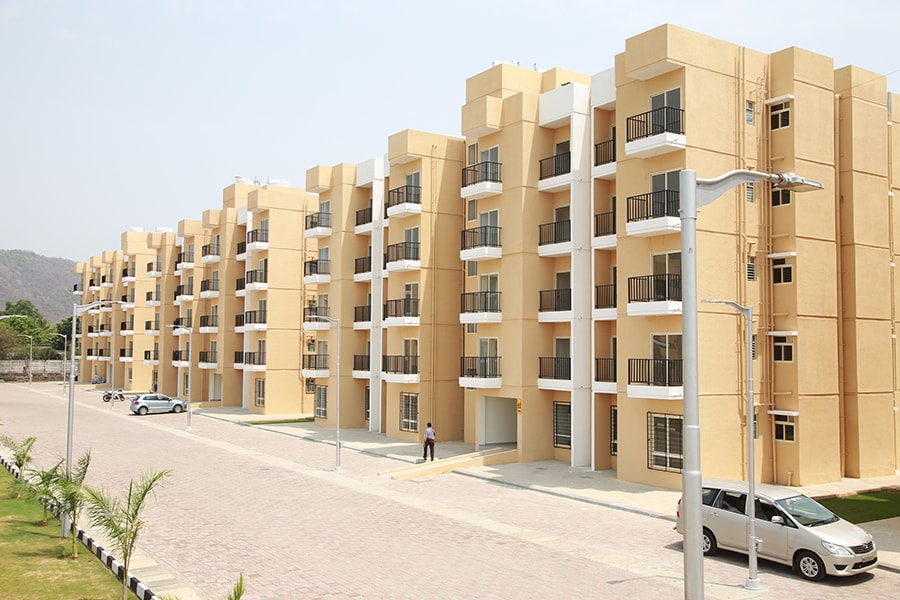Budget's four-point agenda: Affordable housing, infrastructure development, tax
Some of the initiatives are likely to boost the confidence of both investors and consumers, while augmenting transaction activity in the sector


 Image: Joshua Navalkar
Image: Joshua Navalkar
The Union Budget 2017-18 had many key announcements pertaining to improving the overall sentiment in real estate, affordable housing and the infrastructure segment. Measures such as infrastructure status for the affordable housing segment, tax benefits for developers and changes proposed in the long term capital gains tax are likely to boost the confidence of both investors and consumers, while augmenting transaction activity in the sector.
The sector cheered the announcement of according infrastructure status to affordable housing, as this was a long pending request by the industry. It will be an important step towards promoting access to priority lending thereby, spurring supply of low cost housing units across various cities in India. Further, the government has also increased allocation under the Pradhan Mantri Awas Yojana (PMAY) scheme. This will not only encourage home buyers to invest but also encourage participation from private players to launch projects in this segment. Relaxation in area measurement as well as completion timelines to seek tax exemption are also welcome announcements. All these initiatives are expected to provide the necessary boost to the residential real estate segment in the long run.
The thrust of this year’s budget has been infrastructure development with a strong focus on rural infrastructure. Amendment of the Airport Authority of India Act to enable monetization of land assets, development of airports under the PPP model, a new metro rail policy and the passage of an Act for dispute resolution in PPP infrastructure projects are expected to encourage private sector involvement in the creation of urban infrastructure. This will have a direct impact on real estate development by further enhancing infrastructure availability in urban centres.
In order to encourage greater fund flows into the economy, the FM has announced abolition of the Foreign Investment Promotion Board (FIPB). While a clear policy outline is yet to be revealed, this is another positive step to liberalize FDI policy framework and ease regulatory hurdles in attracting investments.
In what’s being viewed as a welcome move, the Government announced a 5% relief to tax assesses in the tax bracket of Rs. 2.5 to Rs. 5 lakhs. Even though it was hoped that the Government will provide several rebates, this move will help increase disposable income for individuals earning upto Rs. 5 Lacs. In addition to a greater tax inclusion, this change will lead to an overall increase in consumption and subsequently boosting demand for real estate.
Additionally, the changes proposed within the capital gains tax will result in an overall increase in transactions in the real estate industry by easing the exit mechanism as well as reducing holding periods. Startups and small organizations are also likely to benefit from the tax rebates, leading to more investments and employment in those sectors.
Overall, the budget has been all encompassing. Apart from the measures listed above, it pledges relief for rural India, middle class taxpayers and small and medium-sized companies. The Government is thus, taking strategic steps towards further strengthening its agenda of stimulating growth, providing relief to middle class, affordable housing, curbing black money, promoting a digital economy, transparency of political funding and simplification of tax administration.
- By Anshuman Magazine, Chairman, India and South East Asia, CBRE
First Published: Feb 07, 2017, 16:00
Subscribe Now